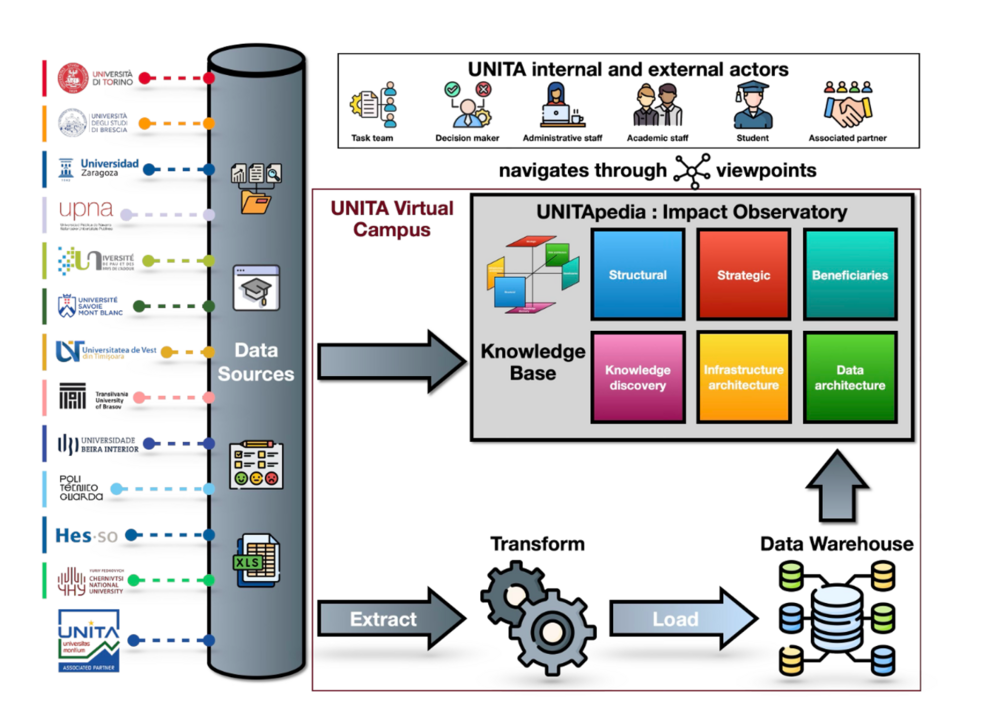Documentation
Data Collection for Impact Observatory
Two ways for collecting the data were implemented for the Impact Observatory. In the automatic path, users simply upload CSV files to our MinIO object-storage service; from there, a suite of Pentaho jobs automatically ingests, transforms, and loads the data into our Datalake, ensuring updated metrics with zero manual intervention. In the manual path, UINTA offices log into our Strapi CMS and complete pre‐built indicator forms (e.g., entering dates, numeric values, and descriptions). Once submitted, each entry is stored in our PostgreSQL database, tracked with metadata (timestamps, author, version), and immediately available for reporting. This dual approach guarantees both high volume automation and flexible, data entry, so all the indicators stay accurate and updated.
Strapi & MinIO Video Tutorial
Bellow a short video tutorial explaining how to use Strapi and MinIO tools for the data collection of indicators.
